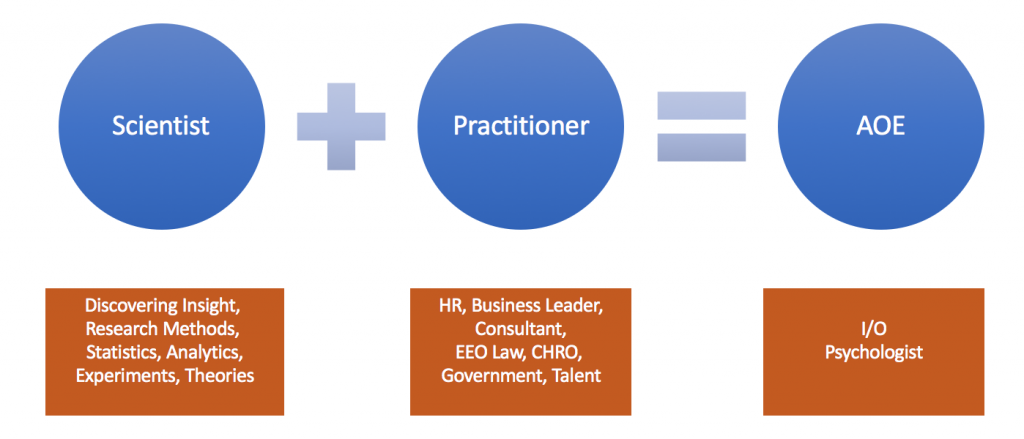What is an I/O Psychologist?
-

Most people are familiar with the field of psychology as whole – simply put, it is the study of human behavior. However, even within the field of psychology, very few people are aware of the discipline of Industrial-Organizational Psychology. In this article, we set out to answer the question – what is an I/O Psychologist and what exactly do they do?
The Society for Industrial and Organizational Psychology (SIOP) describes the discipline:
Industrial-organizational (I/O) psychology is the scientific study of working and the application of that science to workplace issues facing individuals, teams, and organizations. The scientific method is applied to investigate issues of critical relevance to individuals, businesses, and society.

Though that is a relatively thorough definition of I/O Psychology, it does not do much to clarify the confusion of what it is that we do. Essentially, I/O Psychologists are social scientists who use the scientific method and statistical analyses to better understand and improve human behavior in the workplace – things like performance and well-being.
Topics within I/O Psychology include (but are not limited to): recruitment, selection, training, performance management, motivation, occupational health & stress, teams, culture/climate, and leadership. Research and practice in I/O Psychology target these topics to make organizations and organizational practices more efficient and effective while making individuals within those organizations more productive and satisfied. It is important to note that rarely do I/O psychologists hold that title within their job. Individuals who obtain a masters or doctorate degrees in I/O psychology often hold positions in HR, Consulting, Government or in academia as psychology or business professors. Both, applied practitioners and academics in the field of I/O psychology are advocates of the science-practitioner model. The science-practitioner model emphasizes the importance of conducting scientific research that can influence practice and engaging in practices that are backed by scientific research.
You can think of I/O Psychologists as the psychologist for work – the business psychologist. We, as I/O Psychologists focus on our patient – the workplace – and try to make it better. In summary, I/O psychologists are science-practitioners who engage in research and practice aimed at improving the workplace for the organization as a whole and the individuals within it. In future articles, we will explore, in more detail, how specific topics within this field are studied and practiced.
It is important to note that rarely do I/O psychologists hold that title within their job. Individuals who obtain a masters or doctorate degrees in I/O psychology often hold positions in HR, Consulting, Government or in academia as psychology or business professors. Both, applied practitioners and academics in the field of I/O psychology are advocates of the science-practitioner model. The science-practitioner model emphasizes the importance of conducting scientific research that can influence practice and engaging in practices that are backed by scientific research.
You can think of I/O Psychologists as the psychologist for work – the business psychologist. We, as I/O Psychologists focus on our patient – the workplace – and try to make it better. In summary, I/O psychologists are science-practitioners who engage in research and practice aimed at improving the workplace for the organization as a whole and the individuals within it. In future articles, we will explore, in more detail, how specific topics within this field are studied and practiced.